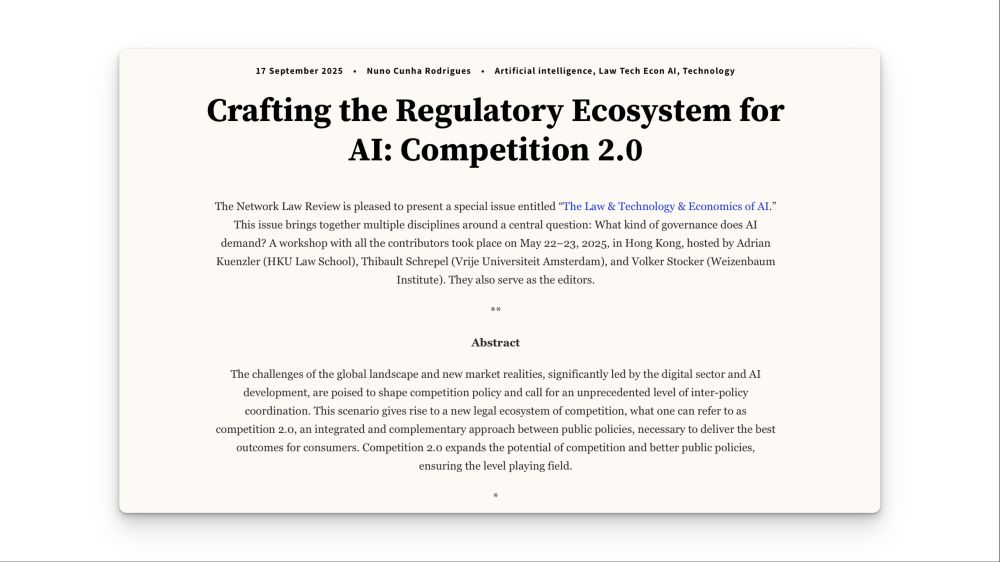


Reposted by Thibault Schrepel
We want to hear your views on the guidelines to improve legal clarity for businesses and ensure coherent enforcement.
📅 Feedback open until 4 Dec 2025
→ link.europa.eu/gbmdVY


Reposted by Thibault Schrepel


Interesting one. Market power persistence isn’t about lax antitrust enforcement. It’s the technology + learning dynamics that give certain cohorts lasting dominance.

Reposted by Thibault Schrepel

The AI Act multiplies review clauses, delegated acts, monitoring obligations. But it lacks true adaptive capacity. In complexity science terms, the EU has built “sensors without reflexes.”
I hope this resonates with colleagues working on AI governance.
Reposted by Thibault Schrepel

Reposted by Thibault Schrepel

👉 Read the full piece: www.lesechos.fr/idees-debats...


Using computational text analysis, Sean Norick Long (@georgetownlaw.bsky.social) shows how Lina Khan reshaped antitrust beyond consumer welfare toward workers, power, and a more moralized public debate.
Link: law.stanford.edu/codex-the-st...



In a word: computational antitrust is here! At the OECD, agencies shared how they’re building tools, infrastructures & teams to enforce law with code. The frontier isn’t adoption, it’s integration!

In short: if you can, start running!

Reposted by Thibault Schrepel
He argues that AI disruption demands a new regulatory ecosystem where competition law works hand in hand with other public policies www.networklawreview.org/cunha-rodrig...







